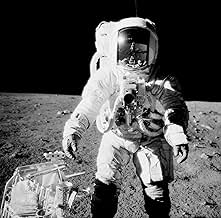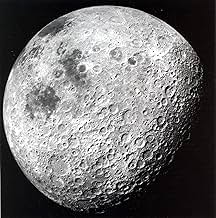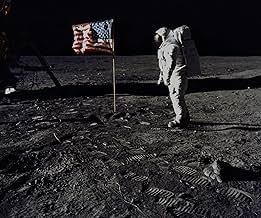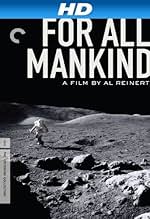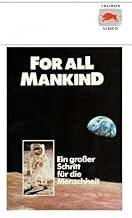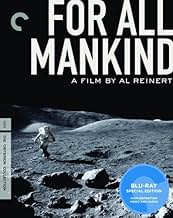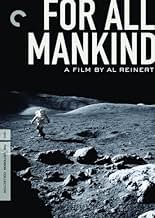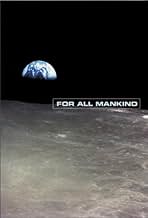Un regard en profondeur sur diverses missions d'alunissage de la NASA.Un regard en profondeur sur diverses missions d'alunissage de la NASA.Un regard en profondeur sur diverses missions d'alunissage de la NASA.
- Nommé pour 1 Oscar
- 3 victoires et 3 nominations au total
Jim Lovell
- Narrator - Apollo 8, Apollo 13
- (voix)
- (as James A. Lovell Jr.)
Ken Mattingly
- Narrator - Apollo 16
- (voix)
- (as T. Kenneth Mattingly II)
Russell Schweickart
- Narrator - Apollo 9
- (voix)
- (as Russell L. Schweickart)
Eugene Cernan
- Narrator - Apollo 10, Apollo 17
- (voix)
- (as Eugene A. Cernan)
Charles Conrad
- Narrator - Apollo 12
- (voix)
- (as Charles P. Conrad Jr.)
Richard Gordon
- Narrator - Apollo 12
- (voix)
- (as Richard F. Gordon Jr.)
Alan Bean
- Narrator - Apollo 12
- (voix)
- (as Alan L. Bean)
Jack Swigert
- Narrator - Apollo 13
- (voix)
- (as John L. Swigert Jr.)
Stuart Roosa
- Narrator - Apollo 14
- (voix)
- (as Stuart A. Roosa)
James Irwin
- Narrator - Apollo 15
- (voix)
- (as James B. Irwin)
Charles Duke
- Narrator - Apollo 16
- (voix)
- (as Charles M. Duke Jr.)
Harrison Schmitt
- Narrator - Apollo 17
- (voix)
- (as Harrison H. Schmitt)
Buzz Aldrin
- Self
- (images d'archives)
Bill Anders
- Self
- (images d'archives)
Neil Armstrong
- Self
- (images d'archives)
Stephen Bales
- Self
- (images d'archives)
- (as Steve Bales)
Frank Borman
- Self
- (images d'archives)
Avis à la une
I've been a fan of Brian Eno's work for years, and have cherished the album entitled "Apollo: Atmospheres and Soundtracks." The album is the commissioned soundtrack for this compilation documentary of the NASA Apollo missions. What a harmony of the arts this is. The stark NASA footage coupled with the hauntingly soothing score create a fascinating marriage of techniques and styles. Although the music editor overused certain tracks over others, the subtlety of Eno's music prevents it from becoming repetitive. A pleasure to watch.
I saw this film at a very, very young age and I suspect that it is the reason I developed a heavy interest in space exploration. I recently saw this again for the first time in many years since all I had was a vague recollection of it. And after watching many times since then I have no problem saying that this is one of the best documentaries ever made.
One must give the film's director, Al Reinert, at a ton of credit for his work. Who else could have come up with the brilliant notion behind this film? Who would have thought of taking footage from all of the Apollo missions (and a couple of the Gemini missions) and combining them with the words of the men who went where no one had (or has since) gone before? (Apologies for paraphrasing Star Trek) The genius of this film is that it shuns away from traditional documentary styling. Instead of compiling facts on one mission and having a well known actor/actress do the narration, the film lets those who went tell the story. Who else is better qualified? They might not be professional actors, but the astronauts don't need to be. It is the power of the events they describe that is the main reason for their presence. They are a powerful voice in this story.
In many reviews I have read, I have seen complaints about the mixing of footage or the use of footage out of its context (a Gemini reentry used for the TLI burn for example). Yes the mixing is nowhere near subtle and is, thus, blatantly obvious. But it is my feeling that this mixing was necessary. The only way to get across the story of Apollo's achievement to the average person was to mix the footage. Does it really matter in the end? I mean by that this: the film isn't about a single mission to the Moon. No, the power of Apollo lies not in each mission, but in the overall effect of the Apollo program. This film is about the journey of Apollo, the effect in had on the astronauts, and the effect it had on us all.
If there is one element of this film that really stayed with men it was the music. It is among the most beautiful and haunting things you will ever here. Brian Eno does a marvelous job of conveying the mystery and majesty of both space and the Moon. This is one of those scores who really have to hear to believe.
For All Mankind, perhaps better then anything else out there, demonstrates the power of humanity in space. For one to really appreciate this film it needs to be seen on a large screen in surround sound. Only then can one appreciate both the film and the power of the Apollo legacy. This is the first film I've seen that I recommend to everyone. This is a film that is truly "For All Mankind".
One must give the film's director, Al Reinert, at a ton of credit for his work. Who else could have come up with the brilliant notion behind this film? Who would have thought of taking footage from all of the Apollo missions (and a couple of the Gemini missions) and combining them with the words of the men who went where no one had (or has since) gone before? (Apologies for paraphrasing Star Trek) The genius of this film is that it shuns away from traditional documentary styling. Instead of compiling facts on one mission and having a well known actor/actress do the narration, the film lets those who went tell the story. Who else is better qualified? They might not be professional actors, but the astronauts don't need to be. It is the power of the events they describe that is the main reason for their presence. They are a powerful voice in this story.
In many reviews I have read, I have seen complaints about the mixing of footage or the use of footage out of its context (a Gemini reentry used for the TLI burn for example). Yes the mixing is nowhere near subtle and is, thus, blatantly obvious. But it is my feeling that this mixing was necessary. The only way to get across the story of Apollo's achievement to the average person was to mix the footage. Does it really matter in the end? I mean by that this: the film isn't about a single mission to the Moon. No, the power of Apollo lies not in each mission, but in the overall effect of the Apollo program. This film is about the journey of Apollo, the effect in had on the astronauts, and the effect it had on us all.
If there is one element of this film that really stayed with men it was the music. It is among the most beautiful and haunting things you will ever here. Brian Eno does a marvelous job of conveying the mystery and majesty of both space and the Moon. This is one of those scores who really have to hear to believe.
For All Mankind, perhaps better then anything else out there, demonstrates the power of humanity in space. For one to really appreciate this film it needs to be seen on a large screen in surround sound. Only then can one appreciate both the film and the power of the Apollo legacy. This is the first film I've seen that I recommend to everyone. This is a film that is truly "For All Mankind".
I won't reiterate all of the praise of this film except to say that if I had just few more spare dollars when it was released on laserdisc, I would have bought a laserdisc player just for this title (and 2001). Fortunately years later I've already purchased a DVD player and For All Mankind has finally been released on that format.
To me the defining moment of this film is the lunar lander slowly returning to the command module. At first we only see the cratered surface of the Moon moving below at incredible speed. Then we see a tiny motionless speck above it. Was it a defect in the lens? Of course not. It's the lunar lander slowly returning from the surface. It seems to take much longer than it really does because there are no cuts and no narrator explaining what we already know we're seeing. There's only a dot turning into a space ship. What more could you add to this amazing sight?
To me the defining moment of this film is the lunar lander slowly returning to the command module. At first we only see the cratered surface of the Moon moving below at incredible speed. Then we see a tiny motionless speck above it. Was it a defect in the lens? Of course not. It's the lunar lander slowly returning from the surface. It seems to take much longer than it really does because there are no cuts and no narrator explaining what we already know we're seeing. There's only a dot turning into a space ship. What more could you add to this amazing sight?
Great footage, but the missions are all over the place without really telling us. If you don't have a little knowledge beforhand, like Apollo 13, you're pretty much left in the dark which mission is which and may think it was just 1 mission to the moon (and back obviously). Started to really dawn on me when Apollo 13 had that breathing problem (which was solved in a jiffy in this documentary) and then a crew was going for a moonlanding ( which obviously Appolo 13 never did. But hey when you hear the name Neil Armstrong you are pretty much back on course. Ah okay great i am seeings Apollo 11 and the first moonlanding at the moment : )
Footage: 8.5 Overall Docu : 6.
Footage: 8.5 Overall Docu : 6.
Most of this NASA footage is not what you've been able to see on the news but footage that shows more of the humanity and introspective moments that happen in the midst of the spectacular. Extended moments of them approaching the moon before the Eagle lands and the astronauts describing what it's like walking on the moon and as they explore and try to take a moment stop and simply ponder being on the Moon. A must see for any space fan.
Le saviez-vous
- AnecdotesThe staging footage was captured because NASA wanted to document the flight process of an unmanned Saturn flight for feedback in case there was a failure for engineers to look at footage to see what went wrong. Cameras were mounted in strategic locations, kicking on at critical moments to document the staging process for less than half a minute. After completion, the light-tight canisters containing the exposed film were jettisoned, dropping to earth with homing beacons and parachutes inside protective heat shields. Air Force C-130 transport planes, towing gigantic nets, recovered the canisters in the southern Atlantic Ocean.
- GaffesThe opening of the documentary incorrectly states that: "During the four year between December 1968 and November 1972, there were nine manned flights to the moon." The last lunar mission, Apollo 17, took place in December 1972.
- Citations
Charles M. Duke Jr.: The only bad part about zero gravity in Apollo was goin' to the bathroom. We had a very crude system. For your feces it was a bag, and you put this bag in the right position. So you go, but the only thing is that nothing goes to the bottom of the bag in zero gravity.
- Crédits fousFilmed on location by the United States National Aeronautics and Space Administration.
- Bandes originalesSirens
Courtesy of Opal Records (Music For Films III)
Written and Performed by Daniel Lanois and Brian Eno
Licensed by Upala Music/Hamstein (BMI)
Meilleurs choix
Connectez-vous pour évaluer et suivre la liste de favoris afin de recevoir des recommandations personnalisées
- How long is For All Mankind?Alimenté par Alexa
Détails
- Date de sortie
- Pays d’origine
- Langue
- Aussi connu sous le nom de
- National Geographic: For All Mankind
- Lieux de tournage
- Sea of Tranquility, The Moon, Space(Apollo 11 landing site)
- Sociétés de production
- Voir plus de crédits d'entreprise sur IMDbPro
Box-office
- Montant brut aux États-Unis et au Canada
- 770 132 $US
- Week-end de sortie aux États-Unis et au Canada
- 33 777 $US
- 5 nov. 1989
- Montant brut mondial
- 770 366 $US
- Durée1 heure 20 minutes
- Couleur
- Mixage
- Rapport de forme
- 1.37 : 1
Contribuer à cette page
Suggérer une modification ou ajouter du contenu manquant



